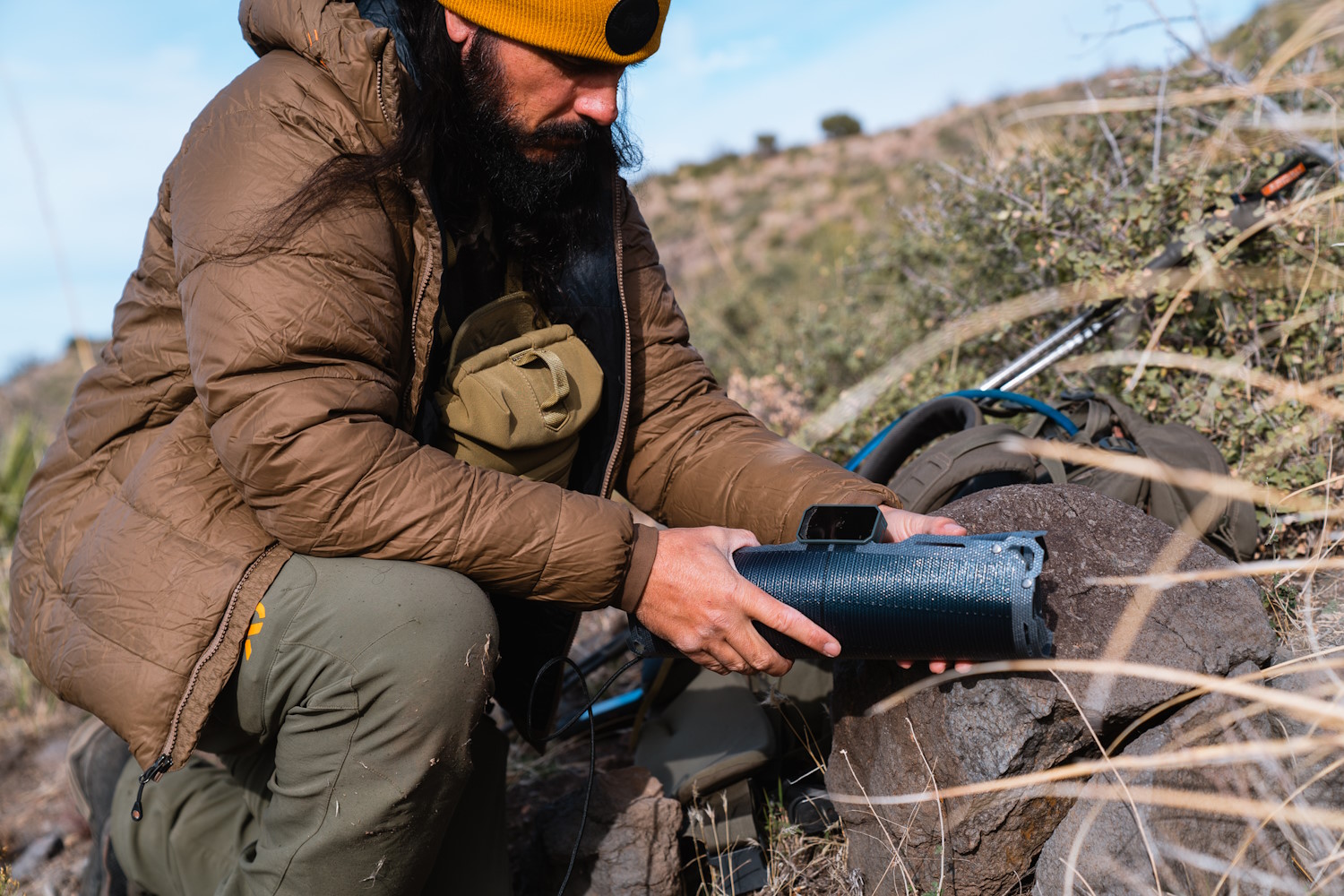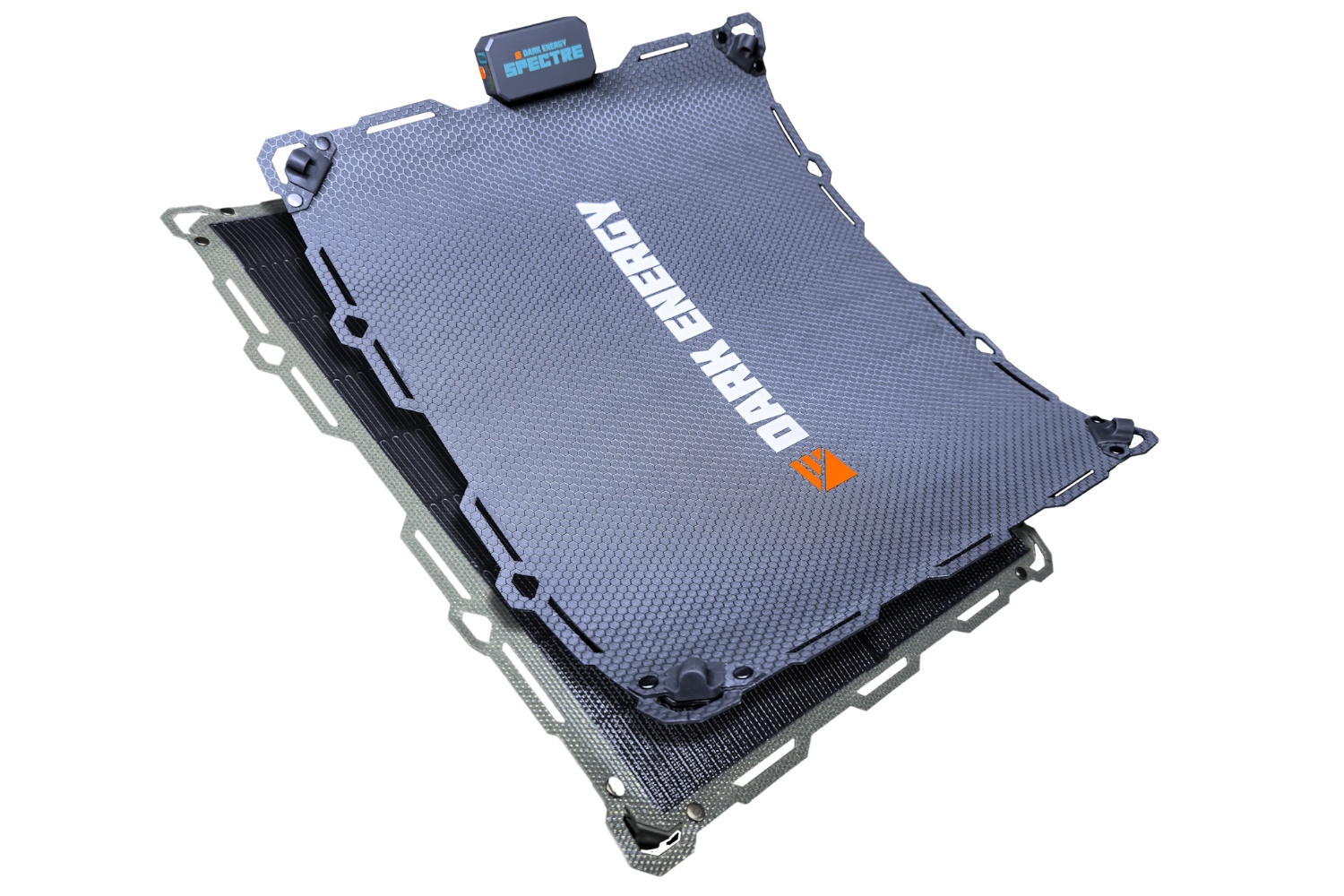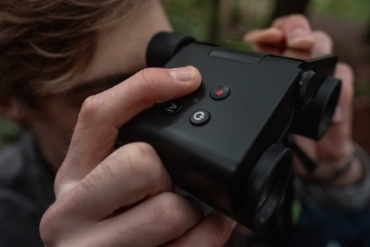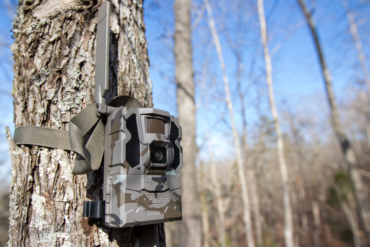Whether it’s charging our cellphones to fuel our digital mapping in the field, headlamps for night navigation, or even our cameras for documenting the hunt, keeping things charged at the ready is crucial to your success in the field every single day. And because each day brings a fresh sunrise, what better energy source for charging than that big ball of fire above? Dark Energy brings us an ultralight solar panel, the Spectre, to do just that and do it well.
At this point, I think we are all avid users of some kind of charging block like the Dark Energy Poseidon. The truth is, though, even those run out of juice. This is why utilizing the sun, like the Spectre does, is such a game changer. It’s an energy source that never runs low on battery.
In short: Hunters, campers, backpackers, and more who pack around the Spectre will be pleasantly surprised at the charging capabilities it offers. It’s got a big flex that few can emulate.
- Weight: 8.9 oz
- Material: Photo-Skyn
- Power Output: 15 watt
Pros
- Lightweight
- Bendable
- Impressive charging rate for a solar panel
Cons
- Not a replacement for a good charging block
Overview
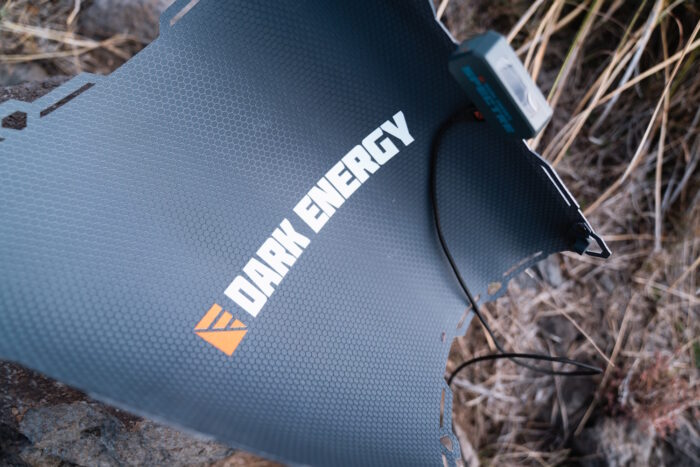
Dark Energy has been a leader in keeping hunters’ batteries charged in the backcountry for more than a few years. The brand’s new Spectre Solar Panel falls right in line with the quality and efficiency the company has been outputting throughout that time.
This is an ultralight 15W solar panel made with packability in mind. At a mere 8.9 ounces, the power-to-weight ratio is off the charts. Each solar panel has a waterproof rating of IPX7 when combined with the MOLLE pouch accessory.
Other accessories include a carrying case, poles, and a stand to ensure that you’re getting the most energy you can from the sun. Devices are charged via a USB-A port located on the sun efficiency meter. To cap it off, Dark Energy provides you with a 2-year warranty.
Features
Bendable
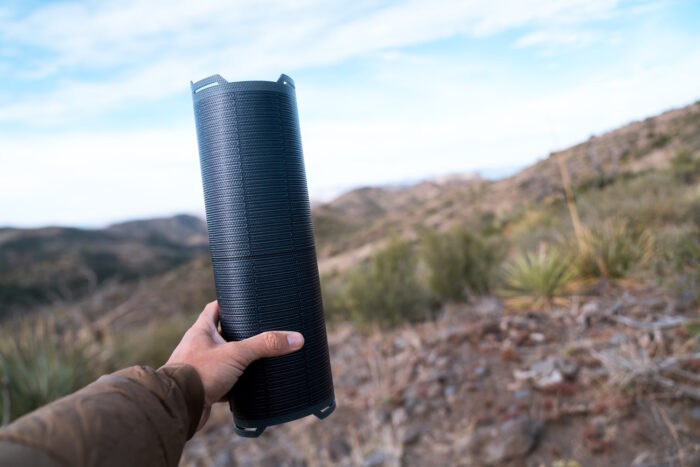
One of the coolest features of the Spectre is the fact that it is bendable due to the Photo-Skyn Panels. Not only does that translate into more durability, but also packability. This means that you can roll it right up like a tent and put it somewhere, like the side pocket of your backpack. When doing this, the center of the roll will still be available to stuff trekking poles, a bugle tube, etc.
Corner Attachment Points
On each corner of the Spectre, you’ll find attachment points. These are mostly for the accessory poles, but they can also be used for other things. For instance, you could stake the Spectre down with them or even strap it to the outside of your backpack with paracord while your phone is charging. This just adds to the versatility of the solar panel.
Sun Efficiency Meter
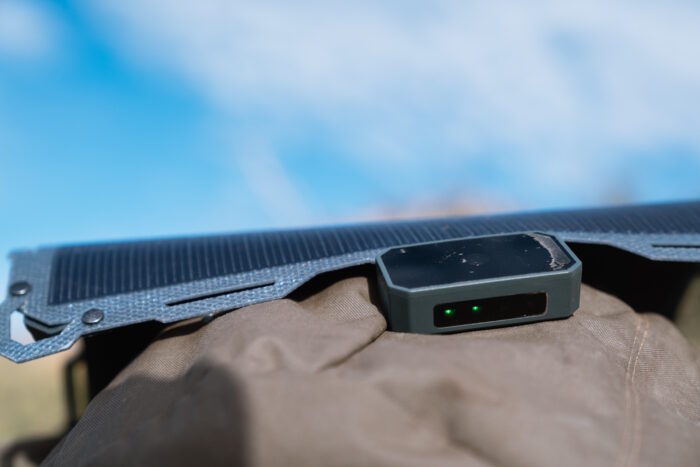
There is a Sun Efficiency Meter located on the solar panel. It has a small lens on it, and it tells you how much sunlight you’re capturing, given the position of the panel. This info is gathered through four little power reference lights. The more sunlight you have, the more energy you’ll be taking advantage of — a nifty feature that can allow one to make sure they’re getting the most out of their panel no matter where they are.
My Experience
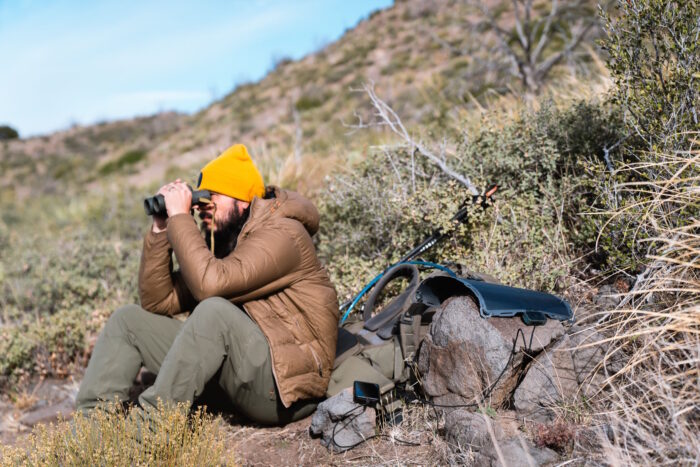
Upon first receiving the Spectre, I was surprised at how lightweight it was and how durable it felt. I have some friends who have used other panels in the past that weren’t even close to being on the same level as this in that regard. The fact that it was bendable also stuck out to me. I immediately saw myself potentially rolling this up and putting it in the side pocket of my pack.
Sun-Responsive
The very first thing I noticed when I used the Spectre was the Sun Efficiency Meter and how responsive it was. On the dime, it changed as I repositioned the solar panel. With the Sun Meter reading a power level of two, my phone was telling me it would reach a full charge in less than an hour at 50% battery life. That is super impressive, given the generous numbers that Dark Energy quotes on its website. They say it takes 4 hours for a phone to reach full charge from zero.
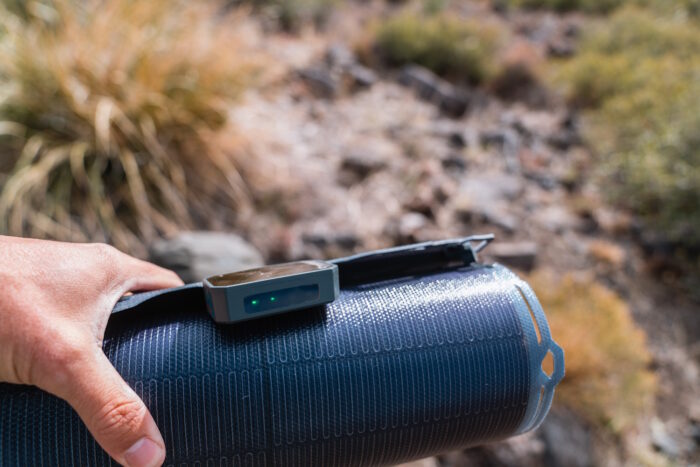
I got to use the Spectre in late fall during a few outings when the sun wasn’t sitting too high in the sky. So, I never could seem to get that Sun Efficiency Meter to go all the way up. Nonetheless, the panel did its job. I’ve gotta say here, though, that it doesn’t charge nearly as quickly as the Poseidon Pro does. With that said, I still think it’s applicable in a charging system.
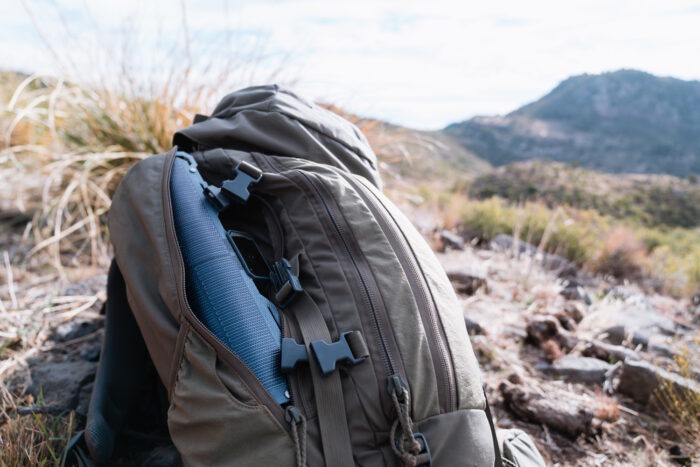
In my opinion, this would be best applied by leaving the panel set up in camp and charging an extra Poseidon Pro while you carry a fully charged one in your pack. You could also strap the solar panel to your backpack while hiking, and it could get you charged up on the go or during a glassing session.
What’s Wrong
Utilizing the sun, a constant source of power, to charge up our electronics sounds like a no-brainer on paper. With that said, I don’t think this is a standalone replacement for something like the Poseidon Pro from Dark Energy. This means that even though it’s lightweight, you’re still carrying extra weight around.
And even though it’s bendable, it still doesn’t pack as well as the Dark Energy charging blocks, and it doesn’t charge as fast. For that reason right there, I wouldn’t bring this on a backcountry hunt. It’s more of a truck-based camp piece of gear.
Final Thoughts
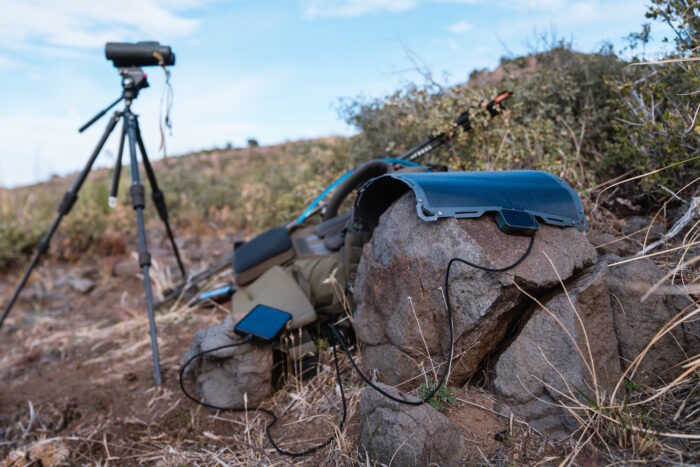
The rate at which cool technology keeps emerging is staggering, and this Spectre from Dark Energy is a great example of that. Having had experiences with solar panels in the past, I can tell you that this is, without a doubt, the best one I’ve used, from its pliable construction to the power it outputs. If you’re swimming around in the pool of portable solar panels, put the brakes on and give the Spectre your time.
